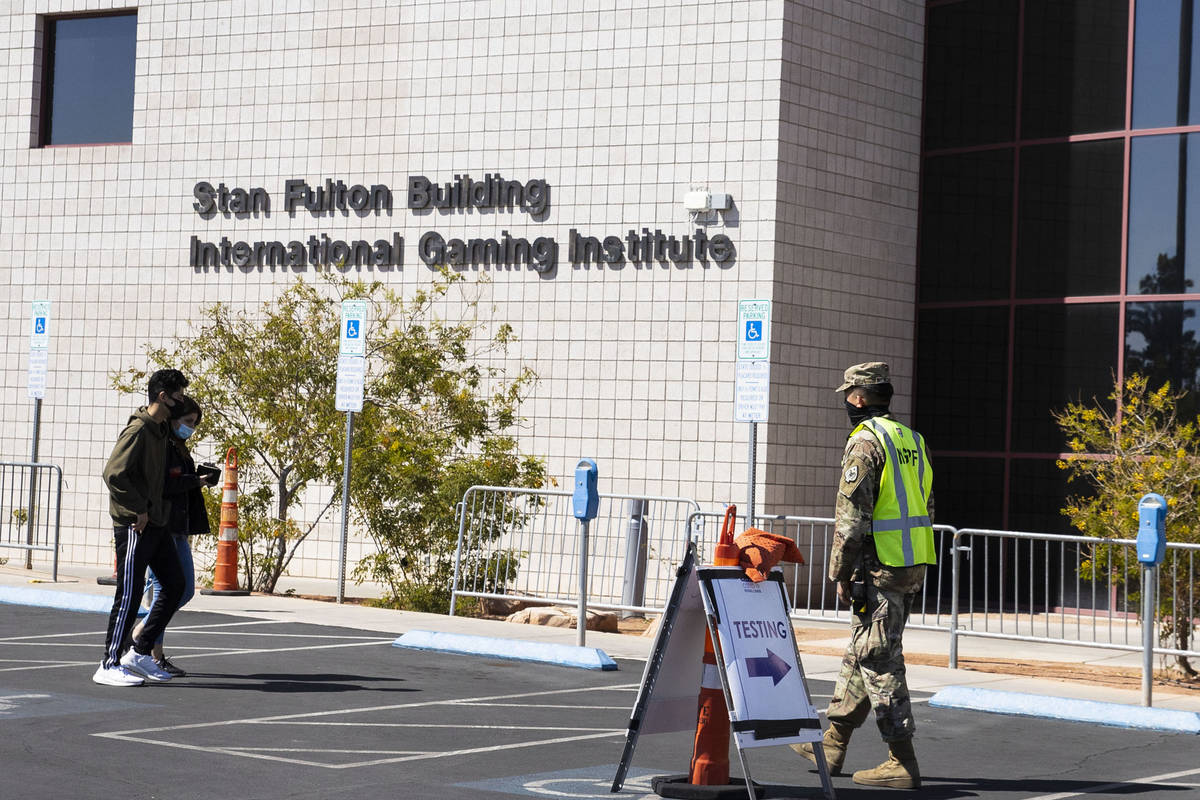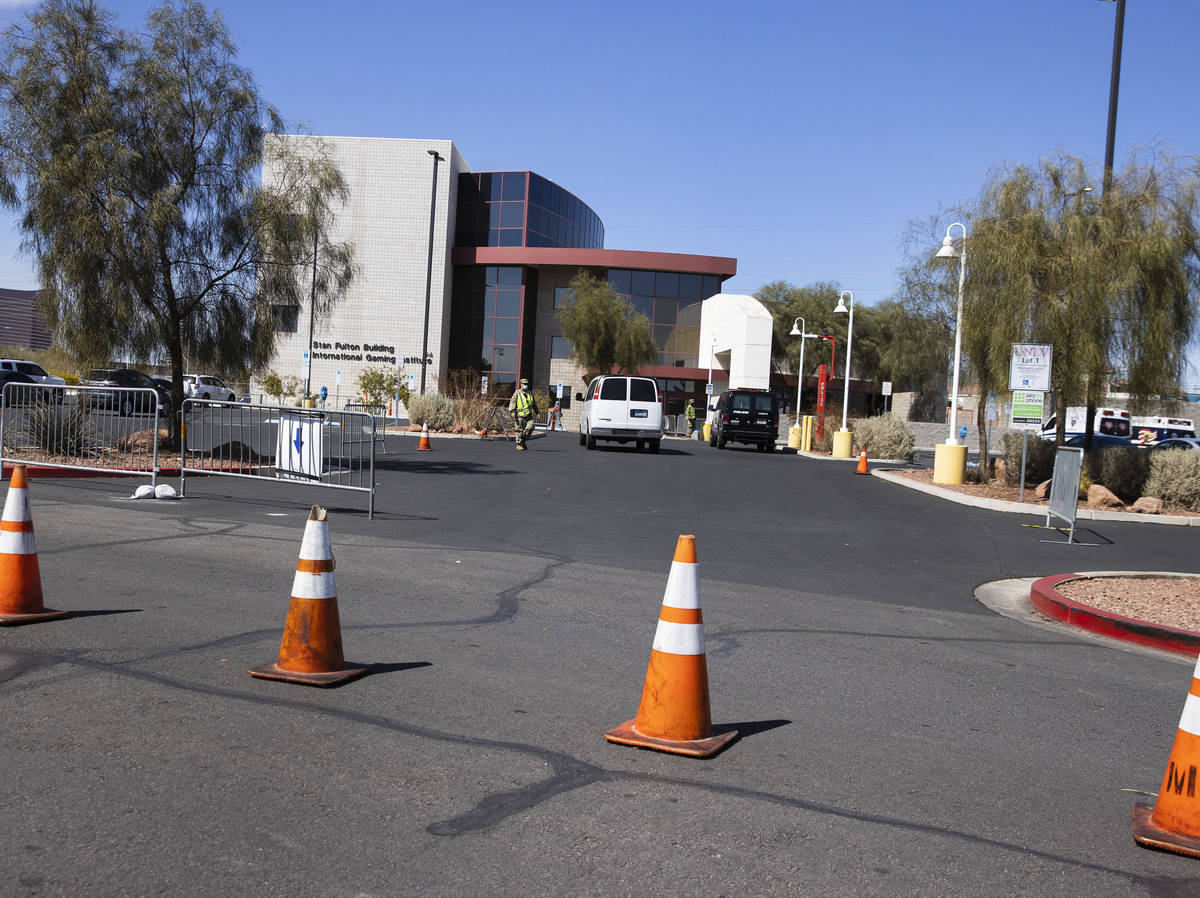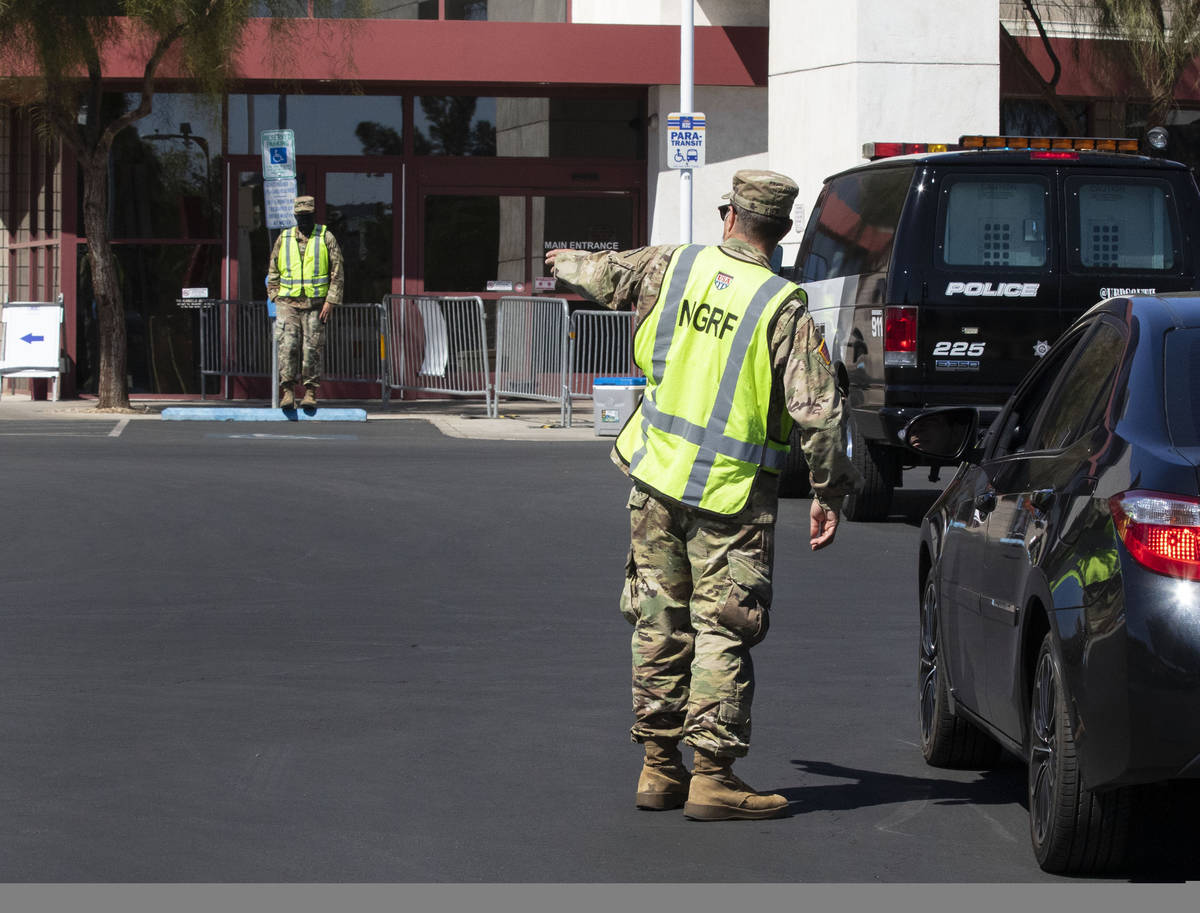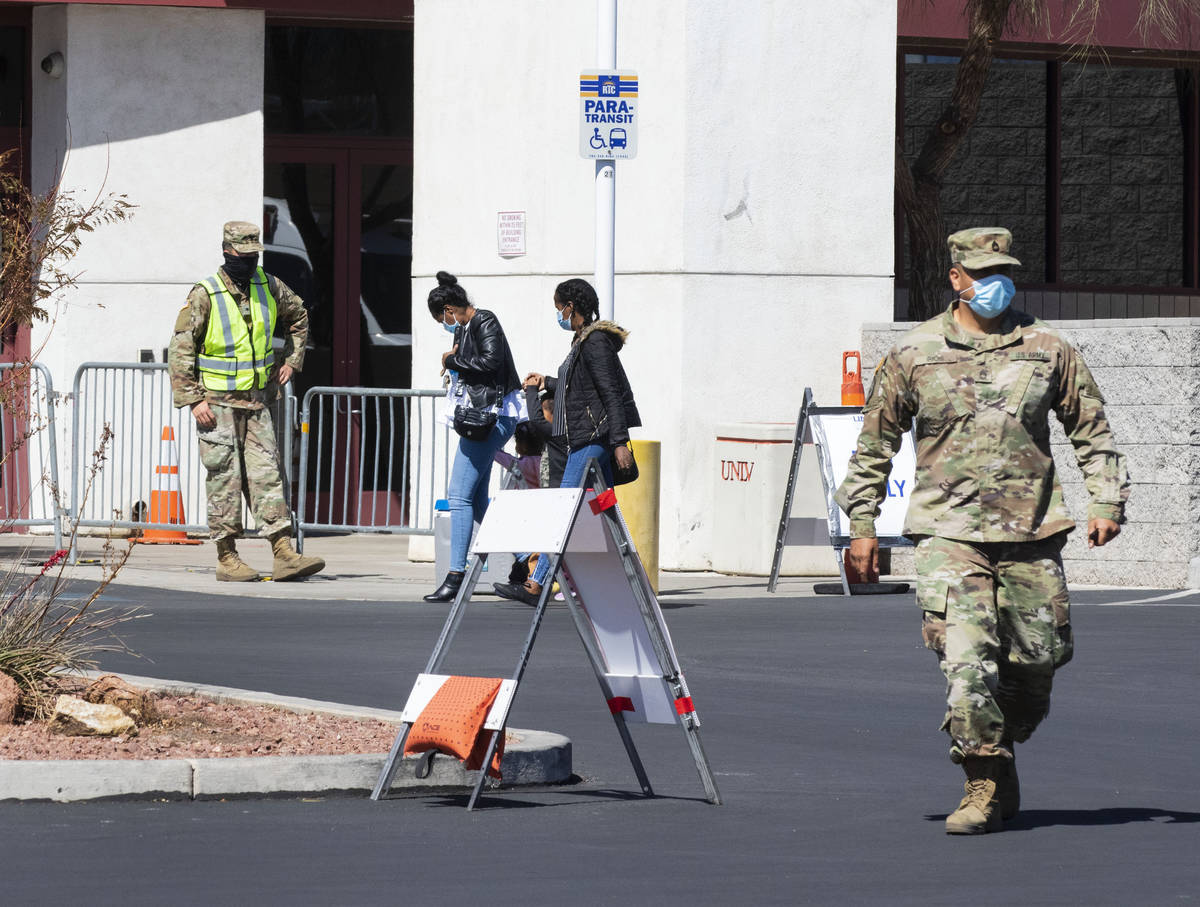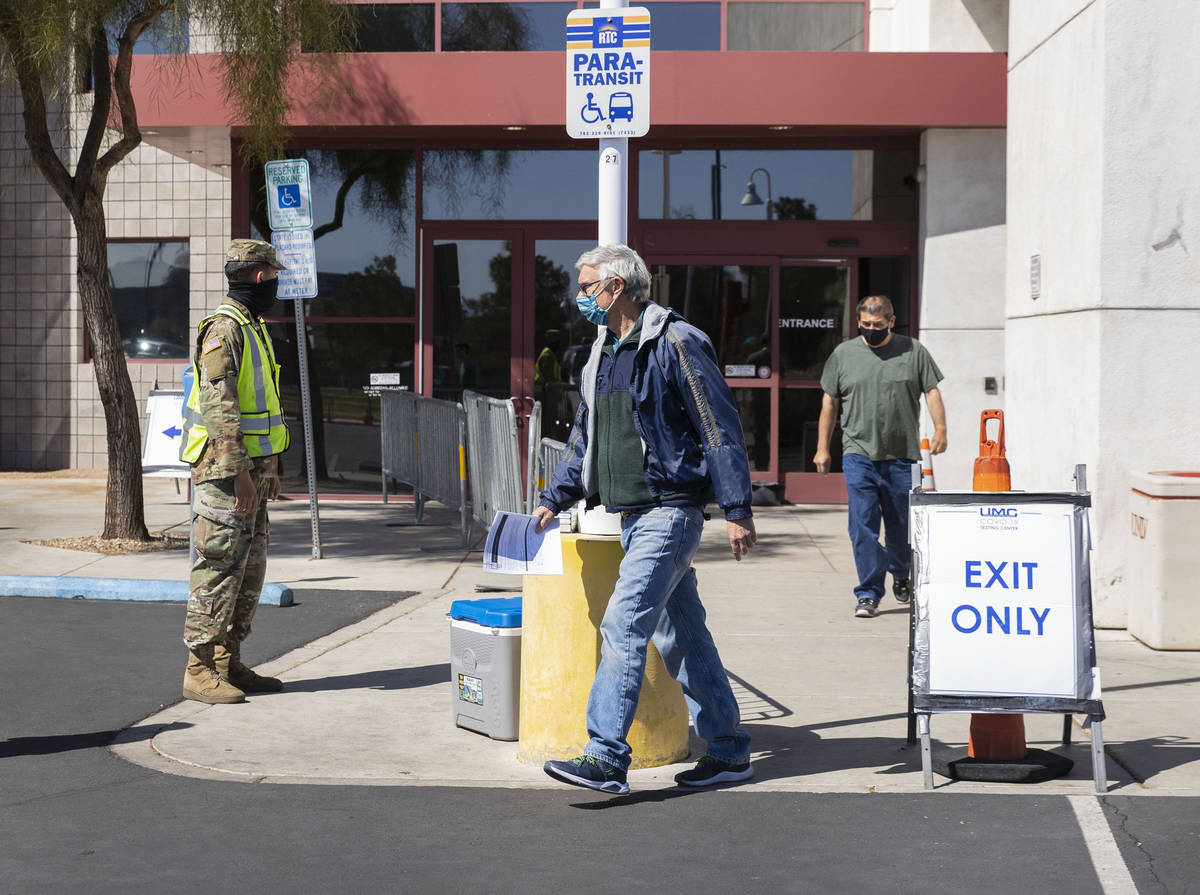Why you should still get tested for COVID-19
Fewer people are getting coronavirus tests now that a winter wave of infections is in the rearview, but officials still want Nevadans to get tested to help identify and stop further transmission.
The decreased testing has not yet hampered the state’s ability to determine the spread of COVID-19, officials said. But they say getting tested will allow contact tracers to identify infected individuals and their close contacts to help prevent another spike in cases.
“We’re actually at a point now where we can be successful again with contact tracing,” state biostatistician Kyra Morgan said. “We had a period where we were in this forest fire of cases and found it wasn’t practical for us to do a lot of contact tracing because there was so much community spread.”
Testing statewide is about where it was before the most recent wave of infections, state data show. Morgan said Nevada is seeing no negative implications from current testing numbers.
Public health officials want counties to be performing an average of at least 100 tests per day, per 100,000 people, over a two-week period.
Clark County is well above the testing threshold officials want to see, performing an average of more than 200 tests per 100,000 people over a two-week period. Statewide testing averages are at about the same level.
Morgan said testing demand is driven by case rates in communities.
“So when you look at the trend at a high level, I could definitely see how it could be interpreted as a lull in testing,” she said. “But really, it’s just in line with that we have less people in the community that are sick and presenting with symptoms. And so that precipitates into less people seeking testing.”
Brian Labus, a UNLV epidemiologist who serves on the medical team advising Gov. Steve Sisolak, said less illness in the community is one part of it.
“But the other part is, people seem to have shifted away from any interest in testing, and are focused completely on vaccination,” he said.
And despite encouraging disease metrics, COVID-19 is still circulating in Nevada.
“If people just stopped getting tested, then our data doesn’t reflect our reality and we need that reality to know where we’re at and where we’re going,” Labus said.
Caleb Cage, Nevada’s COVID-19 response director, said testing and contact tracing remain a critical part of the state’s response to the pandemic.
Until there is widespread immunity, the virus will keep spreading, leaving unvaccinated people who may be vulnerable at significantly higher risk, Cage said. He encouraged testing as a way to help stop the spread.
The Centers for Disease Control and Prevention says anyone who is experiencing COVID-19 symptoms or who has engaged in higher-risk activities that do not allow for distancing should get tested.
People who had close contact with someone confirmed to be infected should also get tested, according to the CDC. Fully vaccinated people who are exposed to an infected person do not need to get tested if they are not showing symptoms.
Contact Blake Apgar at bapgar@reviewjournal.com or 702-387-5298. Follow @blakeapgar on Twitter.



